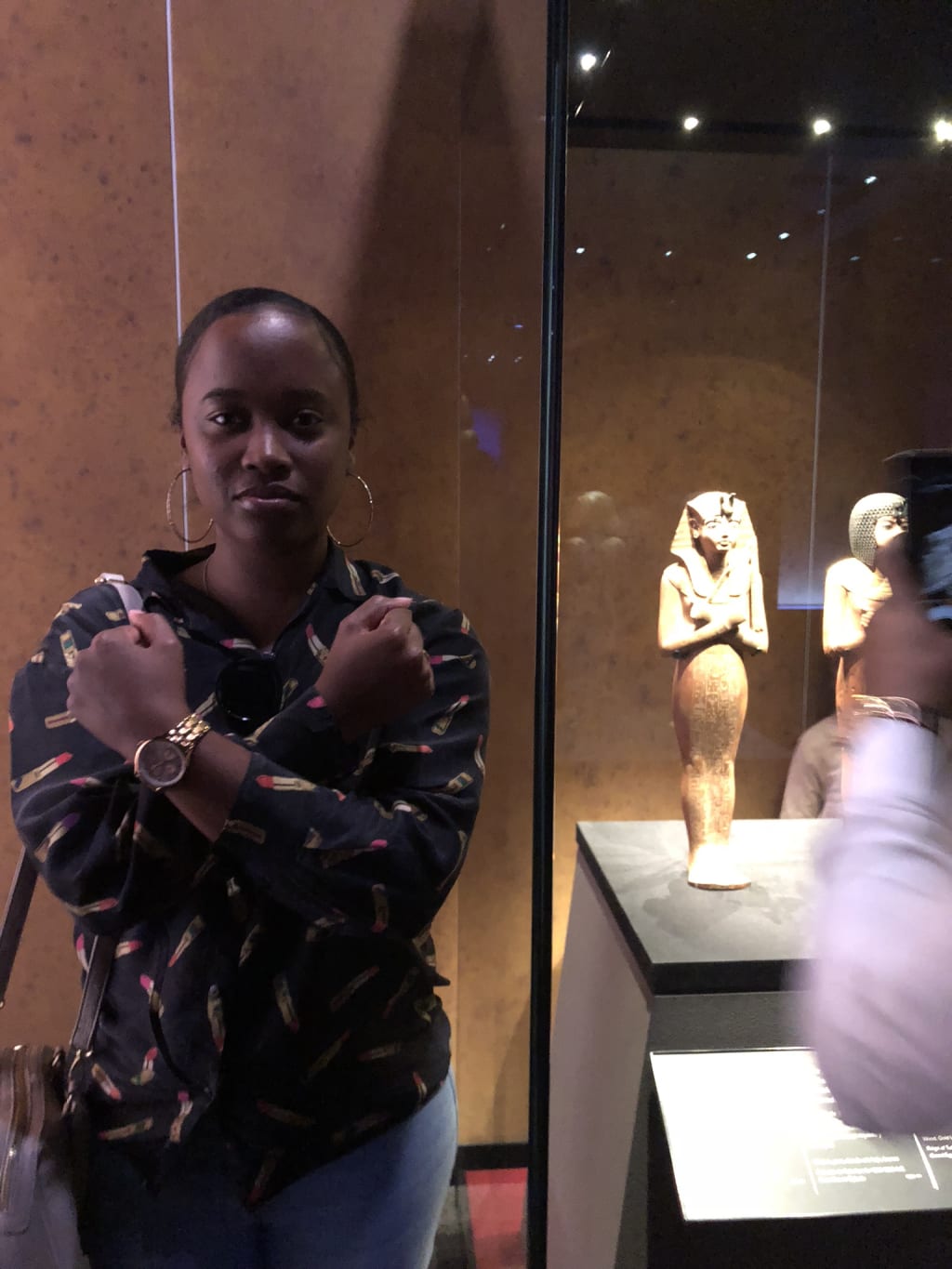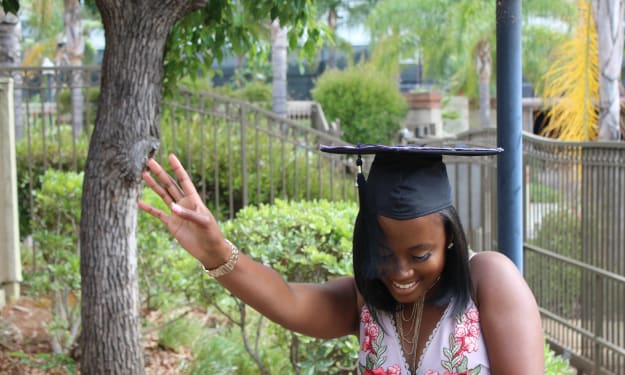The Not-So-Woke Black Girl
How the internal struggles of my ignorance to Black culture created a desire to learn and engage in discussions around Black issues and injustices.

By the title, you can assume one of two things: either I spend a majority of the day sleeping as a Black girl or I’m not as informed (or knowledgeable) of my culture as a Black girl. If you guessed the latter, you’re right. If you guessed the other, you aren’t entirely wrong, but for the purpose of this article, I will be talking about my knowledge (or the lack thereof) of my ethnic background and my personal struggles associated with it.
For those of you who are hearing this word ('woke') for the first time, it means ‘to be knowledgeable of all things Black culture.’ This includes, but isn’t limited to, the systematic injustices surrounding our community.
The term began to surface upon the initiation of the Black Lives Matter movement. This movement began in 2013 after the assassination of Trayvon Martin, an African American teenager, who was shot and killed unjustly because of the color of his skin. The Black community was outraged, to say the least, and the movement was pivotal to our uproar. Thereafter, many reports similar to Martin's began to surface. More often than not, there was a televised case of how a Black boy, Black son, Black father, Black brother or Black friend was killed by someone White. We, as the Black community, saw this as the modern day act of slavery: to kill us and silence our voices.
As a Black girl, I allowed society to enslave me and silence my voice.
Allow me to explain.
Growing up, I noticed that I wasn’t the least bit interested in my history classes. In fact, I would always find an excuse to get out of them so I could work on other assignments in more enjoyable subjects, like English. Looking back, I know that I wasn’t interested in these classes because it wasn’t my history that I was learning about. My history classes involved me having to study White men in books written by White authors to celebrate White people. That screamed boring to me. It didn’t help that my history classes (or teachers) didn’t discuss the rich history of Black culture or how my ancestors fought for the seat I sat in. It also didn’t help that my parents refrained from discussing these things in our household.
My mother was a high school graduate while my dad completed some of college. But, never did we ever engaged in conversation about Black history, Black culture or anything Black-related for that matter. In the same breath, I can admit that I didn't express my curiosity to know more either. I wasn’t afraid more than I was embarrassed to admit that I didn’t know much about my history. I thought my parents might have assumed, much like my school educators, that I should just know my history. But, I didn’t. In fact, there’s a lot that I still don’t know to this day.
It wasn’t until I went off to college that my lack of knowledge started to bother me in such a way that I began struggling with my identity. For the first time (ever!), I was the minority at a predominantly White institution. Throughout grade school, I was surrounded by all brown people (both Black and Hispanics). College was a game changer in that I was reminded everyday that I was Black. I found professors staring at me during class discussions about slavery in hopes of me chiming in with a remark or some outstanding 'Black Lives Matter' statement. But, I never did. In those moments, I remember feeling 'not-woke.' I thought I had let down every Black person living (and deceased) by my silence. I couldn’t help but think of my ancestors who were literally killed for me to speak up.
But, I said nothing.
I rarely said anything. Even as a leader for my alma mater’s Black Student Association (BSA), I didn’t feel woke. I was, in my head, pretending to be apart of a community that included me by default, but had no idea of the internal struggles I was facing or the identity crisis I was experiencing. We would talk about challenging topics, like racism, and as a leader, I sat in admiration of how knowledgeable my fellow peers were. When asked a question about how I felt about a particular matter or instance, I would say something along the lines of: “It makes me sad to know that we live in a world that deems us as less than.” The oppression of Black people made me sad. It did and still does. What also made me sad (and still does) is the thought of how many people (including myself) sat in that room unaware of the history, statistics, laws, protests and ways to bring about justice to the Black community.
In that moment, I realized that I couldn’t be alone.
I say all of this to say that I am a Black girl still learning. I might not know all of the famous Black authors or activists or even in detail what the formative years of Malcom X and Martin Luther King Jr. were like, but I now know the importance of having a desire to learn about one’s history.
I once heard (and it has stuck with me since) that to be ignorant is to not want to know. On the contrary, to want to know (and to seek knowledge of) is to be intelligent. In my pursuit of knowledge, I now ask questions if I’m ever in a room where Black issues are addressed and/or talked about. I admit to my ignorance of not knowing without feeling ashamed or guilty for my upbringing and I yearn to learn. I ask the questions that others in the room might have, but aren’t courageous enough to inquire about because that was once me. But, I’ve turned a new leaf. Now, I get to be a voice to the brothers and sisters of my community who haven’t come into theirs. That, my friends, is the new feeling of being woke. To be inquisitive.
I have not failed my ancestors. I am their wildest dream. #BlackLivesMatter #BlackVoicesMatter






Comments
There are no comments for this story
Be the first to respond and start the conversation.